Suez Canal’s Ever Given blockage could sink global supply chains
The Suez Canal crash has thrown the spotlight on global supply chains with estimates up to $12bn worth of goods could be stuck in the jam.
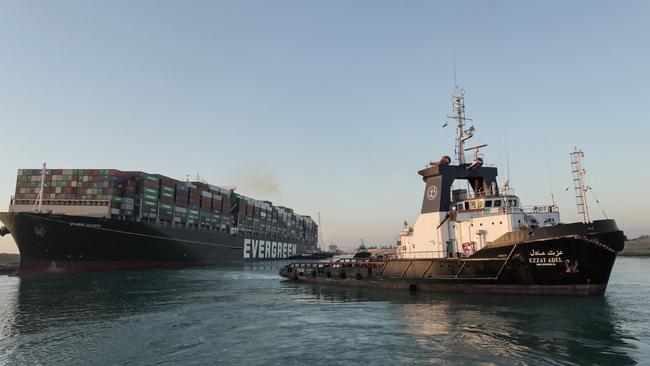
The huge container vessel that had wedged itself in the banks of the Suez Canal could be another blow for just-in-time supply chain systems, a model that had already come under serious stress last year.
The 1300-foot Ever Given supertanker had blocked transit in one of the world’s highest value waterways for almost a week after it sunk its prow into the banks of the canal on Tuesday last week.
The giant ship was partially refloated, although the Suez Canal Authority said there’s still significant work ahead to fully dislodge the stricken vessel and clear one of the world’s most critical trade arteries.
Billions of dollars of consumer goods from a swath of retailers had remained trapped on the wrong side of the ocean or suppliers had been forced to take the long way around Africa in response to the unusual disruption.
Now, the effect of the blockage looks set to play out across global markets.
The shipping backlog would cause havoc in global shipping markets, which were already stretched by the pandemic boom in shopping.
“Tanker owners will be rubbing their hands in the expectations of higher charter rates,” he said University of Sydney Business School’s professor of ports and maritime logistics Michael Bell.
The maritime traffic snarl created by the Japanese-owned, Panama-Flagged supertanker had seen at least 360 vessels stranded, waiting to transit, between both sides of the canal. Industry analysts estimated that between $3.9bn and $12.6bn worth of goods had been stranded by the blockage.
Swedish furniture retailer Ikea confirmed 110 containers of goods were stuck in the snarl.
Professor Bell said the likely flow-on effect would hurt many European businesses already reeling from disruptions from just-in-time supply chains that had been slammed by Brexit and the pandemic.
“We’re seeing a gradual change to global supply chains whereby more are sourced closer to home.
“It will add to the pressures already there for changes to supply chains that lead to less vulnerability to bottlenecks like that.”
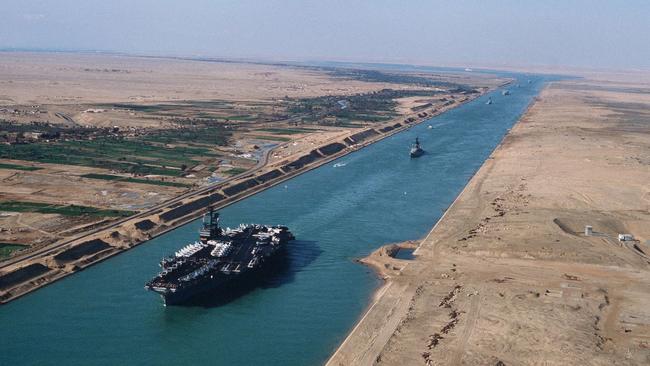
A just-in-time supply chain allows businesses to avoid storing goods needed for production, instead relying on them being readily delivered for use just as they are needed.
Professor Bell said shoppers confined to home had sparked a worldwide boom in goods, as many were flush with funds not being spent on holidays or hospitality.
“There will be some temporary shortages,” he said. “It might affect some supply chains.”
Professor Bell said it was likely the tightening to global shipping would hit Australia too where “the already irregular services are going to become more irregular”.
“It’ll push up prices and push down reliability in terms of container shipping,” he added.
Mr Bell said inspection of the ships awaiting transit revealed several car carriers were adrift.
“It may mean a few people are waiting for their BMWs longer than they hoped,” he said.
CommSec economist Ryan Felsman said the disruptions to the Suez had already been felt in global oil markets, but any temporary bump in prices would pale in comparison to potential shifts coming on the back of the OPEC+ meeting on Thursday.
“While we’ve got blockages in the Suez that’ll have impacts on supply the big issue is whether OPEC+ decide to maintain their restrain on production,” he said.


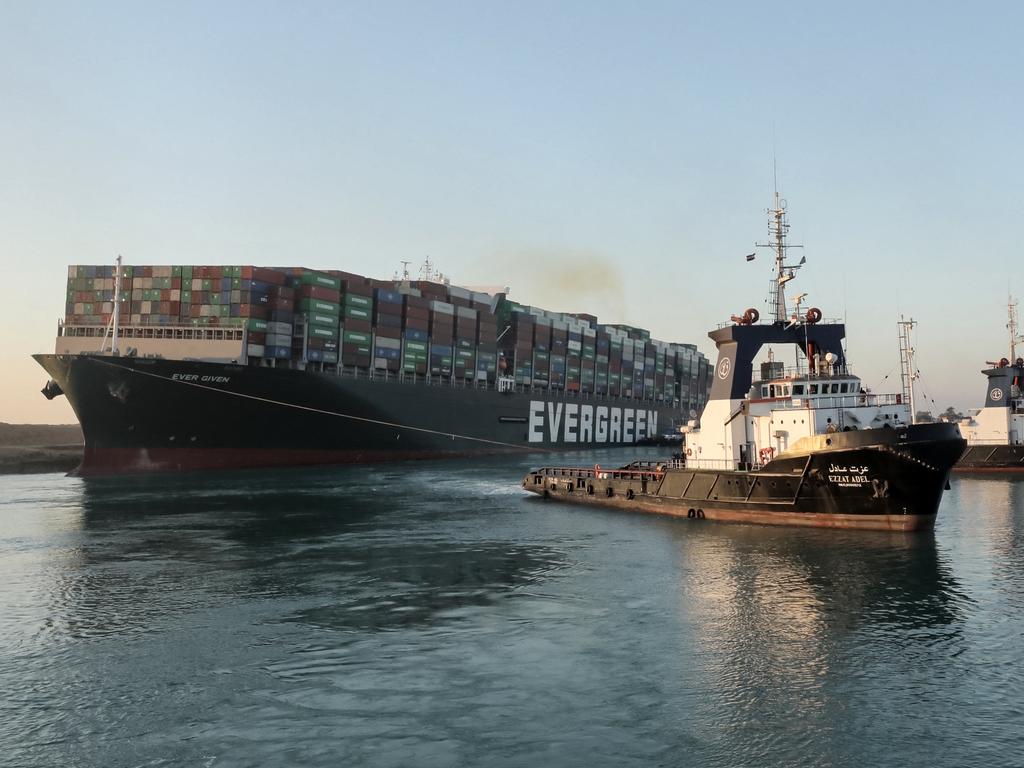
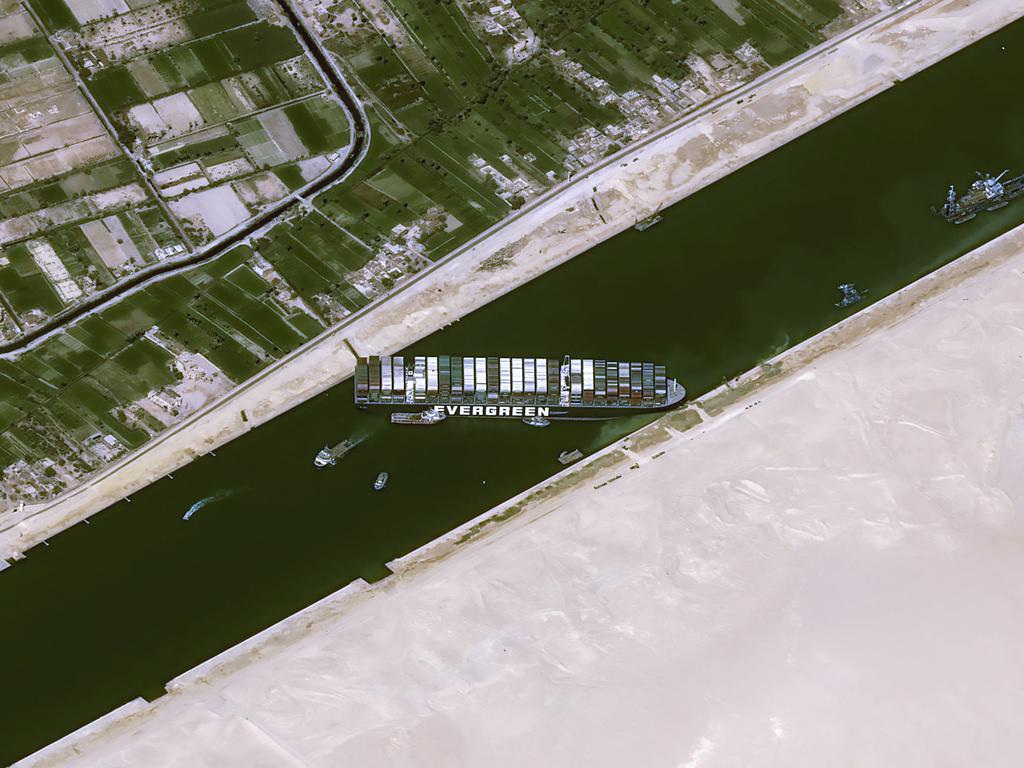
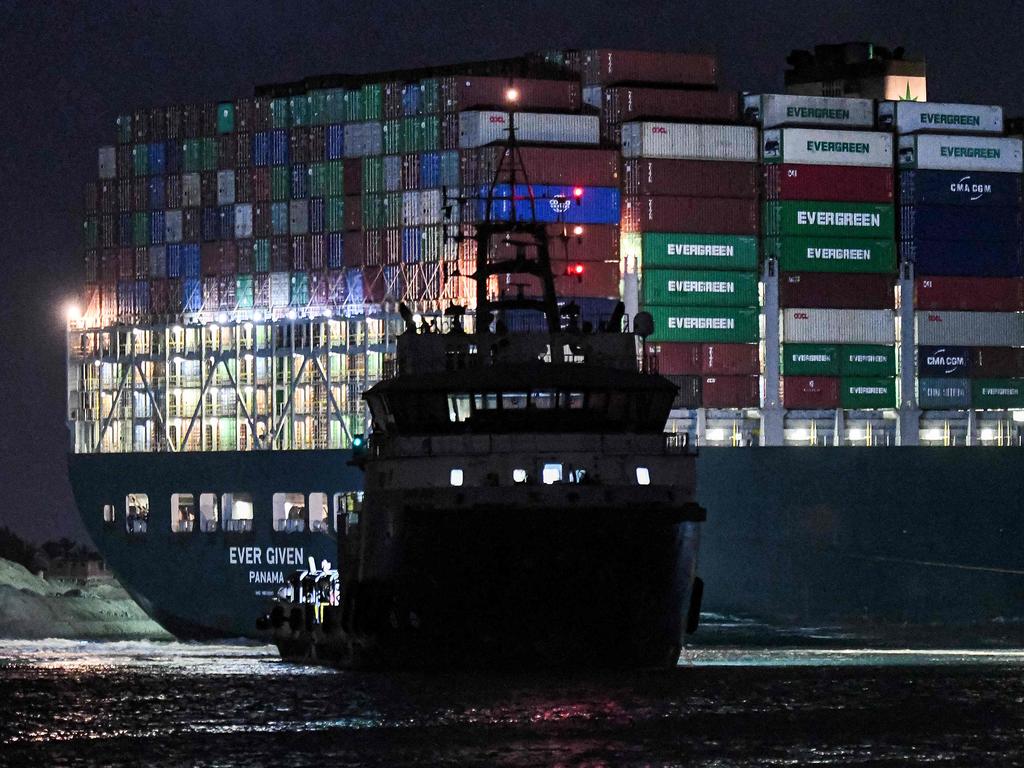


To join the conversation, please log in. Don't have an account? Register
Join the conversation, you are commenting as Logout